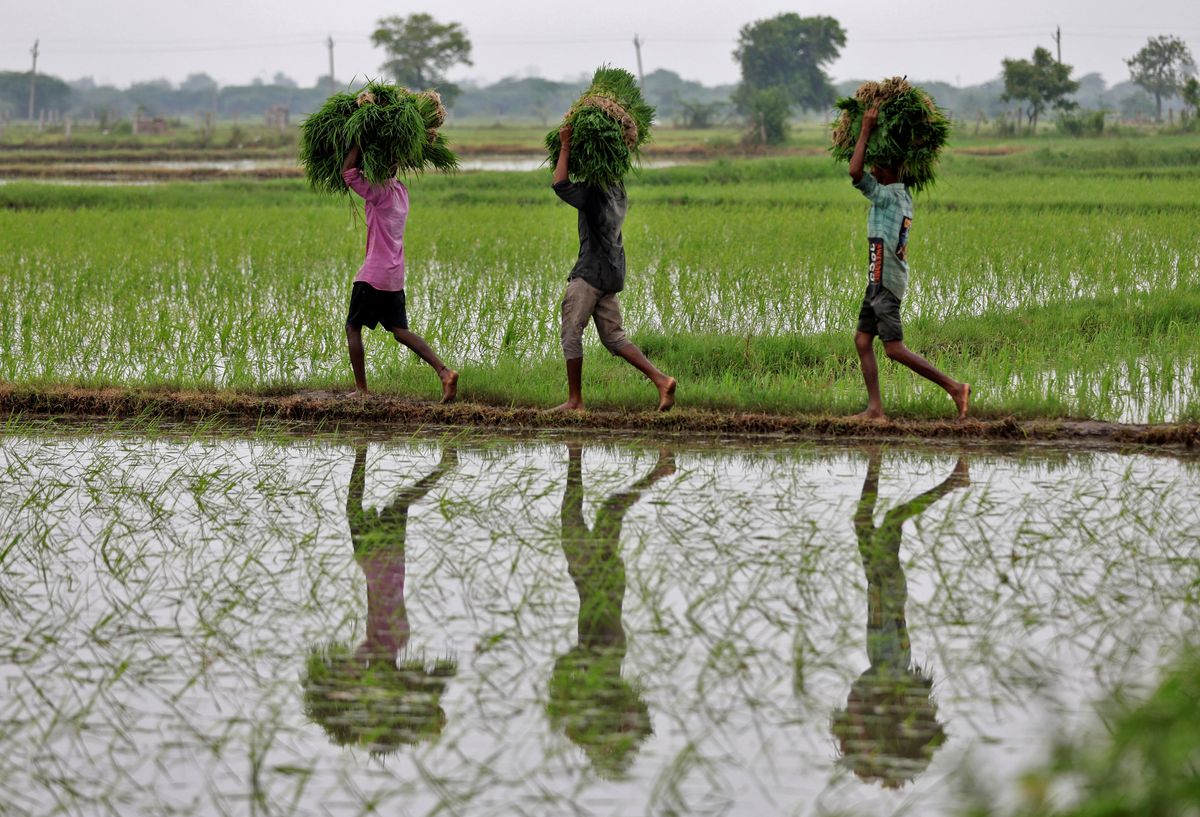India’s rice export ban shakes up the global food supply
On July 20, India put its rice export ban into effect, curbing shipments of non-basmati white rice.

A few minutes every morning is all you need.
Stay up to date on the world's Headlines and Human Stories. It's fun, it's factual, it's fluff-free.
The backstory: Food prices have been going up all over the world. In India, the government has been looking into the best ways to ease this pressure on residents. To make sure that domestically-grown food is made available and accessible in the country, it’s considering export bans for certain food crops – like rice. India is the world’s largest rice supplier, though, contributing around 40% of the world’s supply. Billions of people rely on rice for their diets, and a cut to the supply could put more pressure on global inflation. So, there’s some international worry when it comes to food shortages in other parts of the world.
More recently: On July 20, India put its rice export ban into effect, curbing shipments of non-basmati white rice. Asia, Africa and the Middle East are expected to be the most affected by this ban. The regulation does allow for some government shipments to some food-insecure countries.
On top of all that, in Thailand (the world’s second-biggest rice exporter), the government has started pushing its farmers to cut rice production to save water, as it’s experiencing less rainfall than usual. This could put even more pressure on the global rice supply.
The development: After India launched its export ban, rice prices in Asia have reached the highest they’ve been in over three years. Other countries are trying to adapt to the situation. Singapore, which gets about 30% of its rice imports from India, is currently seeking an exception to the ban. Other major rice suppliers, like Thailand and Vietnam, have also been shaken up. Rice exporters in these two countries are renegotiating prices on their sales contracts for August shipments, looking to make up for increased prices from farmers. International Monetary Fund (IMF) chief economist Pierre-Olivier Gourinchas believes that global grain prices could rise up to 15% this year with these developments.
Key comments:
“The scale of people impacted by Indian rice ban will be in millions,” said Samarendu Mohanty, Asian regional director at CIP. “There is very low probability of this export ban being lifted,” Mohanty added, saying the ban could stick around through India’s general elections next year.
"I suspect that the action to ban non-basmati rice exports is largely precautionary and hopefully it will prove temporary," Joseph Glauber of the International Food Policy Research Institute told the BBC.
“It’s impossible to ask farmers to stop planting when prices are this good,” said Chookiat Ophaswongse, honorary president of the Thai Rice Exporters Association. “We’re more concerned that intermittent rainfall between August to October will result in a lower rice output in the main harvest season.”
"These bans hurt the vulnerable people most because they dedicate a larger share of their incomes to buying food," Shirley Mustafa, a rice market analyst at the UN's Food and Agriculture Organisation (FAO), told the BBC. "Rising prices could compel them to reduce the quantity of food they consume or switch to alternatives that are not nutritionally good or cut expenses in other basic necessities like housing and food."




Comments ()